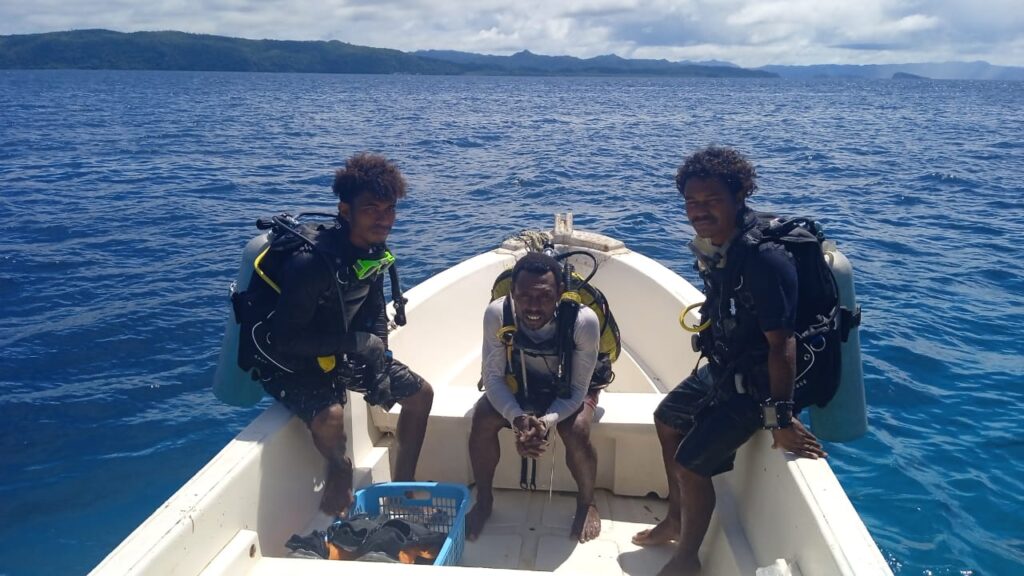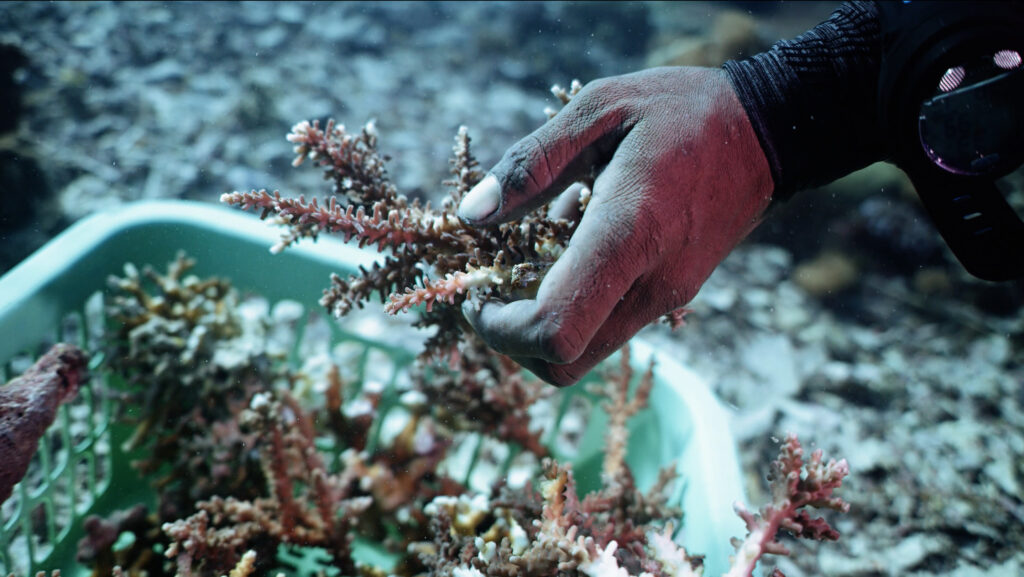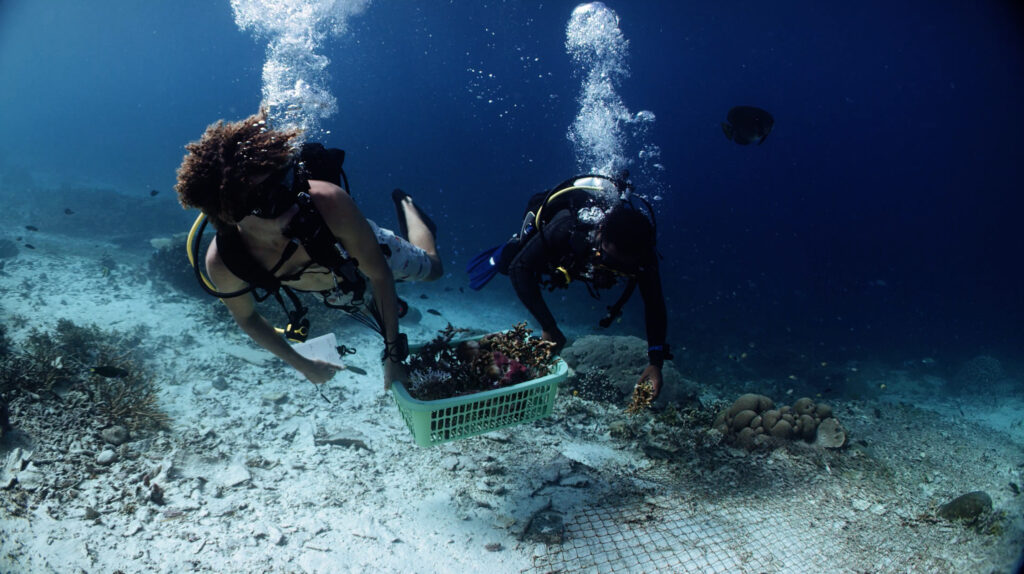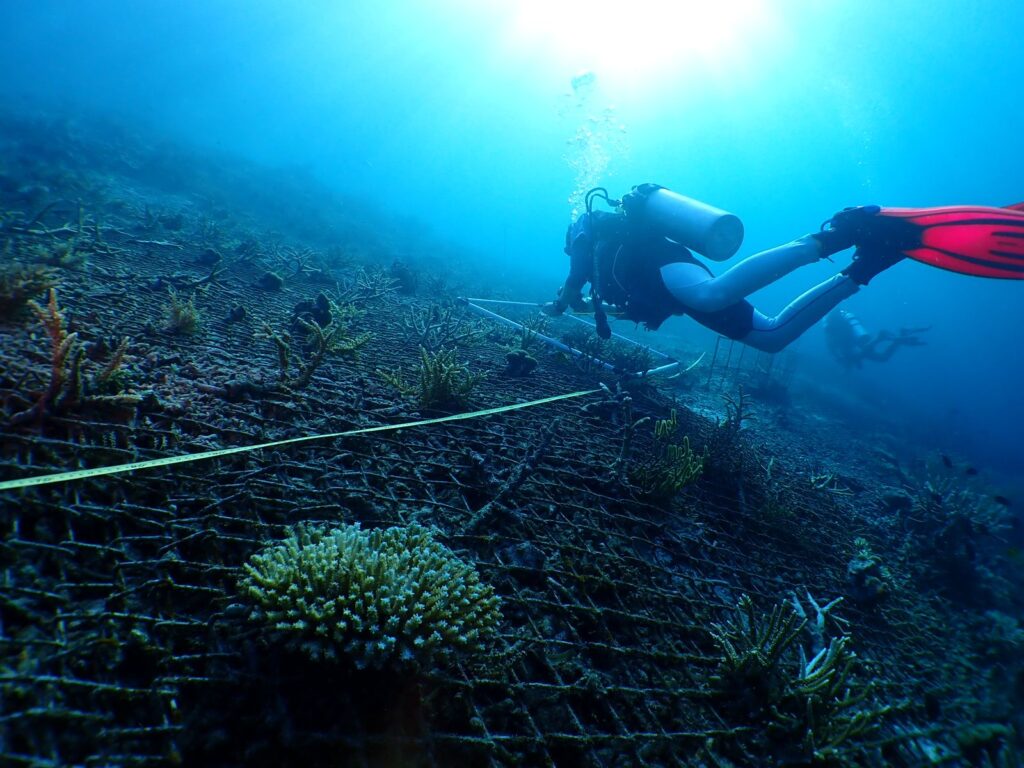Yaf Keru
Coral Reef Restoration for Biodiversity Action in Western Papua, Indonesia




Yaf Keru, or the ‘Coral Garden’ project, harnesses newfound market mechanisms and converges them to mobilize the geography’s local populations toward biodiversity action. With multiple hectares of reef restoration covered and extensive efforts still to come, Raja Ampat’s growing ecotourism will witness responsible traction, safeguarding biodiversity and creating new channels for a thriving local economy. This momentum will drive residents to embrace their roles as reef stewards, forging a stronger connection to their environment.
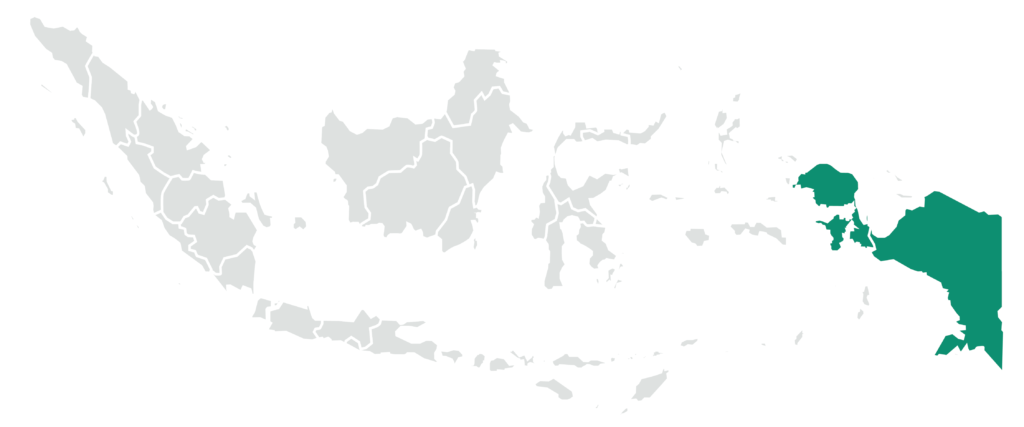
Raja Ampat, West Papua, Indonesia
Project Location: Raja Ampat, West Papua, Indonesia
Methodology: Energy Efficiency Measures in Thermal Applications of Non-Renewable Biomass
Standard: Plan Vivo
Reviving: 500 HA
Coral Transplanted: 611,14+
Dives: 500 HA
Volunteers: 611
Surface restored: 1.7116 m2 (+3609m2 in progress)
Surface stabilized: 8,206m2
Making Markets Work for Biodiversity Action
The strength of our one-of-its-kind coral reef restoration project lies in linking local experts, who have lived among the region’s biodiversity, with finances derived via biodiversity credits. Making the markets incentivize communities aids the project in taking bigger steps than ever witnessed before. The incentivization enables economic growth in Raja Ampat, employing coral farmers for restoration activity and better disseminating knowledge and understanding to protect marine ecosystems. Reefs for Restoration attracts market revenues to take it beyond coral restoration and create a robust economy in the region that champions responsible development.





This project addresses marine restoration conservation, using indigenous knowledge and the skills of Raja Ampat’s individuals with scientific approaches. It thus builds the foundation for effective marine conservation, led by indigenous populations at new scales. Reefs for Resilience has catalyzed reef restoration in the area, with its local experts deploying over 100 underwater mesh structures to support the growth of planted and existing reefs. These efforts match the funds generated from the markets, bringing economic incentivization to the local experts heading reef restoration.
Reefs for Resilience pairs coral reforestation efforts with market-derived incentivization and the region’s sustainable economic development. And that sustainable approach is for more than just the now—it is for the generations to come. The project currently engages 600 community members across strata and gender toward biodiversity action, with that number only expected to grow. This places the community at the center of the project and the forefront of coral maintenance, building ownership, and offering a massive stake in the benefits engendered by the markets.
The region’s population has lived among the waters generationally and is acquainted with the reefs like no other. Our efforts translate through them—the project partners inclusively with the local reef experts of Raja Ampat for coral farming, underwater mesh installations, knowledge sharing within the communities, and propagating awareness. These aspects will ensure the reefs are here to stay and biodiversity thrives while the region’s commercial activities, like tourism, continue to exist and boost its economy.
With ‘Sasi’ management practices so integral to the region’s environmental stewardship and climate action, we cannot help but integrate them into the project’s design and operations. Sasi practices involve customary methods to safeguard the ecosystem and have evolved into accommodating modern techniques. Our blended method unites traditional practices with scientific and technological solutions to counteract the effects induced by climate change.
Marine Conservation Skills

This project addresses marine restoration conservation, using indigenous knowledge and the skills of Raja Ampat’s individuals with scientific approaches. It thus builds the foundation for effective marine conservation, led by indigenous populations at new scales. Reefs for Resilience has catalyzed reef restoration in the area, with its local experts deploying over 100 underwater mesh structures to support the growth of planted and existing reefs. These efforts match the funds generated from the markets, bringing economic incentivization to the local experts heading reef restoration.
Communities First

Reefs for Resilience pairs coral reforestation efforts with market-derived incentivization and the region’s sustainable economic development. And that sustainable approach is for more than just the now—it is for the generations to come. The project currently engages 600 community members across strata and gender toward biodiversity action, with that number only expected to grow. This places the community at the center of the project and the forefront of coral maintenance, building ownership, and offering a massive stake in the benefits engendered by the markets.
Reef Restoration Led by Local Experts

The region’s population has lived among the waters generationally and is acquainted with the reefs like no other. Our efforts translate through them—the project partners inclusively with the local reef experts of Raja Ampat for coral farming, underwater mesh installations, knowledge sharing within the communities, and propagating awareness. These aspects will ensure the reefs are here to stay and biodiversity thrives while the region’s commercial activities, like tourism, continue to exist and boost its economy.
Action Spearheaded by Blending Approaches

With ‘Sasi’ management practices so integral to the region’s environmental stewardship and climate action, we cannot help but integrate them into the project’s design and operations. Sasi practices involve customary methods to safeguard the ecosystem and have evolved into accommodating modern techniques. Our blended method unites traditional practices with scientific and technological solutions to counteract the effects induced by climate change.
Gallery
